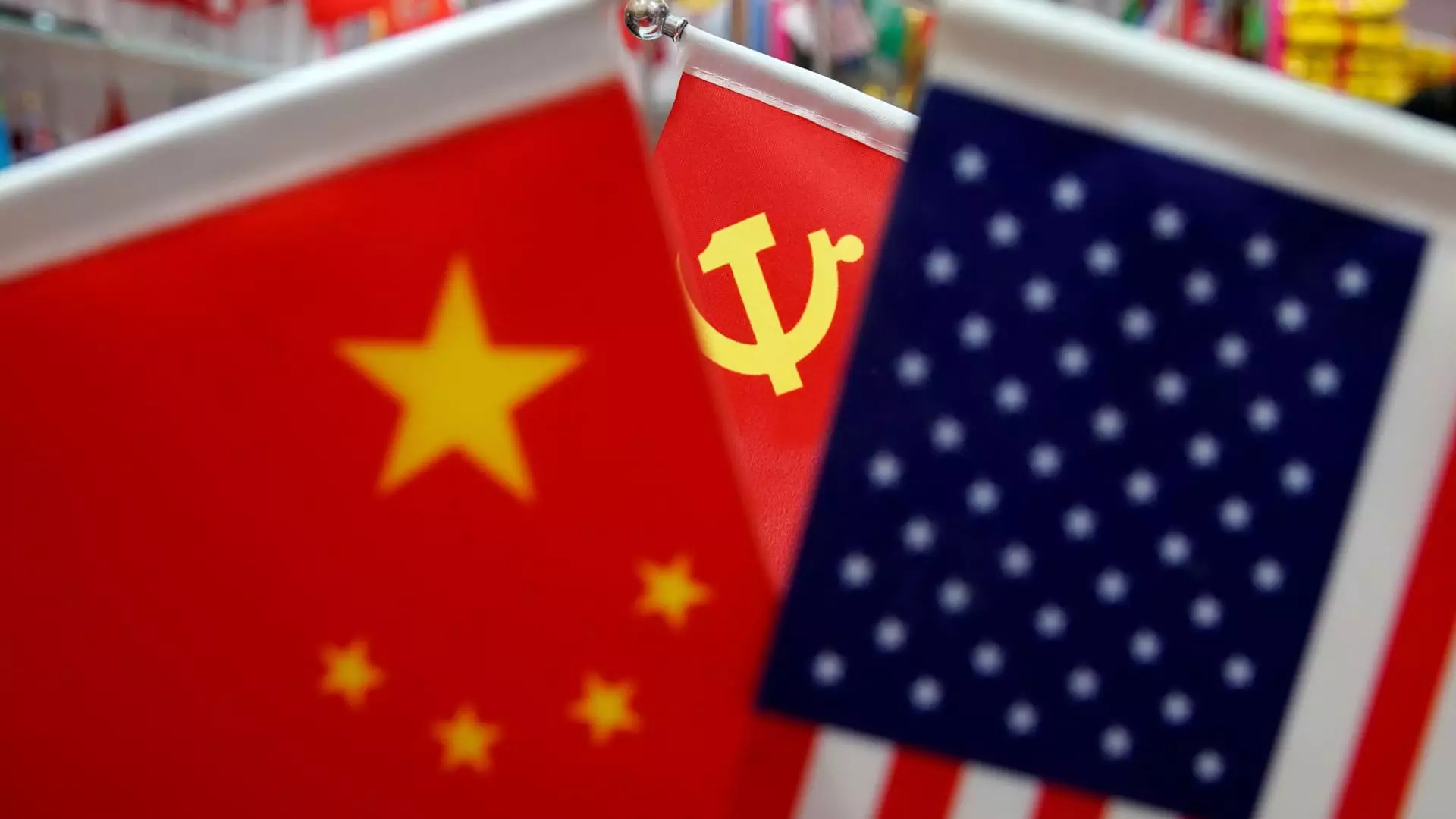The ongoing struggles for a trade agreement between the United States and China are not merely economic transactions; they symbolize a deeper, more complex relationship akin to a high-stakes chess game. When President Donald Trump characterized negotiations with Chinese leader Xi Jinping as “extremely hard,” he was not just articulating the difficulties inherent in diplomacy; he was framing a narrative steeped in volatility and unpredictability. This is indicative of a broader trend in U.S.-China relations, a tug-of-war that often leaves both countries teetering on the brink of economic discord.
Trade relations between the two superpowers have become a battlefield where not only tariffs and trade barriers are at stake but also national pride and global influence. The recent statements by U.S. Treasury Secretary Scott Bessent, who noted that trade talks were “a bit stalled,” reflect a palpable frustration permeating Washington. Such sentiments reinforce the idea that the trade war is not merely an isolated affair; it symbolizes the complications of a bilateral relationship fraught with mistrust and past grievances.
The Reality Behind Promises
Despite the upbeat rhetoric about potential conversations aimed at ameliorating trade tensions, the dissonance in actions tells a different story. Trump’s remarks on social media about his admiration for Xi, coupled with an acknowledgment of Xi’s tough negotiating style, signal a paradox in the fundamental American approach to diplomacy. Such statements might be read as attempts to soften tensions, yet they are juxtaposed against measures such as revoking visas for Chinese students—actions that clearly signal contempt.
China’s response to the increasingly hostile moves from the Trump administration is illustrative of its struggle to maintain dignity while defending its interests. China’s Foreign Minister Wang Yi’s criticisms of the U.S. “negative measures” highlight how Beijing perceives American actions as aggressive provocations rather than legitimate trade grievances. The language used by both nations has become increasingly charged, reducing what should be constructive dialogue into a convoluted narrative of blame and mistrust.
Power Plays and the Quest for Stability
The economic strategies employed by both countries seem to pivot on the recognition that cooperation is presently too fraught with complications. For instance, China has notably failed to reduce restrictions on rare earth exports, a critical element in high-tech industries, defying U.S. expectations. On the other hand, the continuous effort by Washington to limit China’s access to advanced technologies demonstrates a palpable unwillingness to allow any perceived advantages to fall into China’s hands.
The assertion that a phone call between Trump and Xi might be on the horizon leads some analysts, like Neo Wang of Evercore ISI, to suggest that Beijing may be attempting to manage expectations for that dialogue. The idea that Xi seeks to avoid any embarrassment during such exchanges reflects a wider trepidation within Chinese leadership regarding how the U.S. will act in the tumultuous landscape of international relations. The subtext here is clear: both leaders know that any misstep could have substantial repercussions for their domestic industries and overall global standings.
Bilateral Relationships: The Broken Promises
What we are witnessing is far more than simple trade negotiations. The lack of trust undermining U.S.-China relations manifests in various ways, and the space for meaningful dialogue is shrinking. For Trump, the trade negotiations are an opportunity to showcase his hardline stance domestically, but such grandstanding risks alienating allies and suffering backlash if negotiations do not yield tangible results.
Recent statements indicate that while there may be an eagerness to communicate, the probability that both sides will align their objectives effectively remains low. In a world that thrives on economic interdependence, the notion of cooperation is rendered hollow when entangled in geopolitical agendas. If both parties genuinely wish to move forward, they must navigate beyond their self-imposed constraints to foster a dialogue that prioritizes genuine collaboration over political bravado.
As these titans continue their intricate dance, it becomes glaringly evident that a path toward stability will require not just open channels of communication but a sincere departure from the cycle of blame that has defined recent interactions. Whether Trump and Xi emerge from their next tentative conversation having salvaged their bilateral relationship or further strained it is a question that remains ominously unanswered.


Leave a Reply